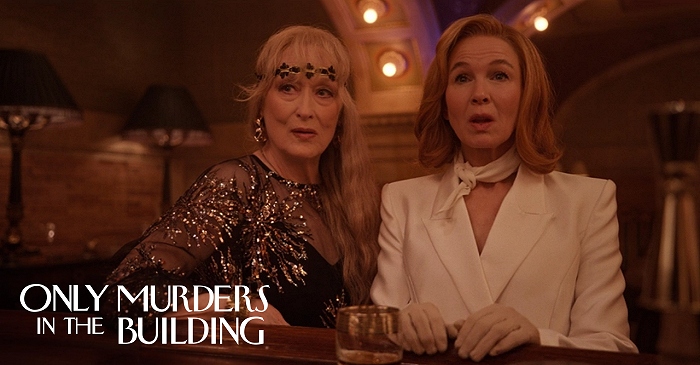|
Simply Streep is your premiere online resource on Meryl Streep's work on film, television and in the theatre - a career that has won her acclaim to be one of the world's greatest living actresses. Created in 1999, Simply Streep has built an extensive collection over the past 25 years to discover Miss Streep's body of work through thousands of photographs, articles and video clips. Enjoy your stay and check back soon.
|
At the Berkeley College’s Master Tea, Meryl Streep lauded the recent Berkeley College initiative to serve mostly organically grown food, with a focus on buying from local farmers, and discussed why she reluctantly became a public spokesperson for the same cause. Once she became an actress, Meryl Streep never had any intention of working as anything but that, she told an audience of students. A concern about the health of her children, however, forced her to take on another role for which she has also earned public attention: as a committed activist for organic food and the preservation of Connecticut farms. In the late 1980s, Streep formed the environmental and consumer advocacy group Mothers and Others for Pesticide Limits, which brought national attention to the health risks to children of the pesticide Alar, then commonly used on U.S.-grown apples and other fruit. Streep spoke out about the dangers of the controversial pesticide on a “60 Minutes” program and before the U.S. Congress. Before she had children, Streep said, she paid scant attention to some of the environmental issues with which she is now concerned. She recounted how she moved from New York City to Connecticut after noticing that her baby son was breathing in diesel fuel from car exhausts at nose level when he was in his stroller.
At the time, her own children “were guzzling apple juice,” and she had concluded from studies she read that Alar, when heated, “turns into something akin to rocket fuel,” she said. In Connecticut, where Streep lives, there were then few outlets to buy organic food. She credited the Natural Resources Defense Council, environmental journalist Michael Pollen and a friend who wrote a book about the dangers of pesticides for helping to inform her of the risks of eating chemically treated foods. A steep rise in childhood cancers, autism and asthma is “the price we’re paying for cheap food,” claimed Streep, noting that locally grown food doesn’t require the pesticides used to preserve foods that “travel a long way.” While acknowledging that organic food is more expensive to purchase, Streep said an even greater cost results from the diabetes, heart disease and other illnesses to which Americans’ unhealthy diets contribute. “In forming a nonprofit organization, I thought I was forming something for the good of the world, but I learned it is a business,” she said. The organization eventually folded because of its debts, Streep stated, but she continues to provide financial backing to other organizations that work for causes she believes in. When asked after her talk if there were any parallels between acting and activism, Streep commented, “What engages me in each thing is the opportunity to be as truthful as I possibly can.” She encouraged the Yale students in her audience to take advantage of opportunities to fight for their own causes, saying, “It’s better to [be an activist] when you are young and unfettered.” The actress also reminded the students that they are making important choices with every product they buy, including their food choices, and said that they can have an impact on the availability of organic foods and help save local farms. “You vote with your dollars, your credit card,” she told the students. “You’re voting for what is going to be available. The voice of consumers is so much more eloquent than any legislation.”
On her activism: I didn’t care when it was just myself; it was cool to be in Soho. But when you have kids, your concerns shift. My husband was mad at me, my children were mad at me. I didn’t want to re-invent the whole food distribution system to not feed my children rocket fuel. I’d much rather go into a hole than go on television and bark at things I insufficiently understand. My own children’s future was more important to me than whether I was going to get another movie or whether someone would be mad at me.













